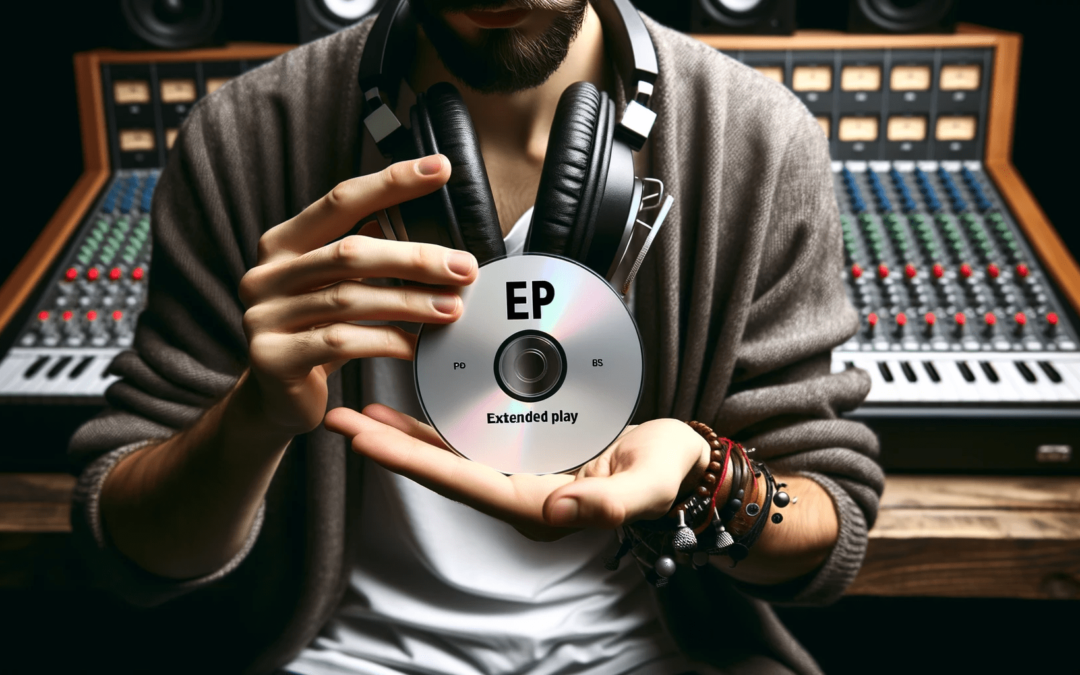As a DIY musician, you have probably heard the term “EP” thrown around quite a bit, but what exactly is an EP in music? An EP, short for “extended play,” is a type of release that sits between a single and a full-length album. In this blog post, we will dive into what an EP is, its history, and why it can be a useful tool for aspiring musicians.
What is an EP?
An EP is a musical release that typically contains between 3 to 6 tracks, which is shorter than a full-length album, but longer than a single. In terms of duration, an EP typically ranges from 10 to 30 minutes. EPs can be released both digitally and physically, on formats like CDs, vinyl, and cassette tapes.
The History of EPs
The concept of EPs goes way back to the 1950s when vinyl records were first introduced. At the time, singles were the primary format for distributing popular music. However, record companies realized that they could generate more revenue by releasing extended play records that contained more than one song. EPs soon became a popular way for musicians to showcase their talents and gain exposure.
In the 1960s, EPs became particularly popular in the UK, where they were often used as a promotional tool for new bands. For example, The Beatles released several EPs early in their career, which helped them gain popularity and exposure.
Why Release an EP?
So, why should a DIY musician consider releasing an EP? There are several reasons why an EP can be a useful tool in building your music career:
- It’s a great way to test the waters
If you’re a new artist, releasing an EP can be a great way to test the waters and see if there is an audience for your music. It’s a smaller commitment than a full-length album, which means you can experiment with different sounds and styles without investing too much time or money.
- It can help you build momentum
Releasing an EP can help you build momentum and create buzz around your music. It gives you something to promote and share with your fans, which can help you gain new listeners and followers.
- It can be more cost-effective
Producing a full-length album can be expensive, especially if you’re a DIY musician. Releasing an EP can be a more cost-effective way to get your music out there and build your brand.
- It can help you get noticed by industry professionals
EPs can be a great way to get noticed by industry professionals like record labels, booking agents, and music supervisors. If they like what they hear, they may be more inclined to work with you or license your music for use in film, TV, or advertising.
Tips for releasing an EP
If you’re thinking about releasing an EP, here are some tips to help you get started:
- Choose the right songs
Choose the songs that best showcase your talents and represent your brand. Consider the order in which you want to present them to create a cohesive listening experience.
- Consider the format
Think about the format that works best for your music and your budget. Digital releases are the most cost-effective, but physical formats like vinyl or cassette tapes can be a great way to create a tangible connection with your fans.
- Invest in good artwork
Invest in good artwork for your EP, as it will be the first thing that people see when they come across your release. Make sure it reflects your brand and the music you’re releasing.
- Plan a release strategy
Plan a release strategy that includes promotion, marketing, and distribution. Utilize social media, email marketing, and live shows to promote your EP and build momentum around its release.
In conclusion, an EP can be a useful tool for DIY musicians looking to make it as a full-time musician. It allows you to test the waters, build momentum, and get noticed by industry professionals. However, it’s essential to approach the release strategically and invest in good artwork, promotion, and marketing. With the right approach, an EP can be a stepping stone towards a successful music career. So, if you’re a DIY musician, consider releasing an EP and see where it can take you.

